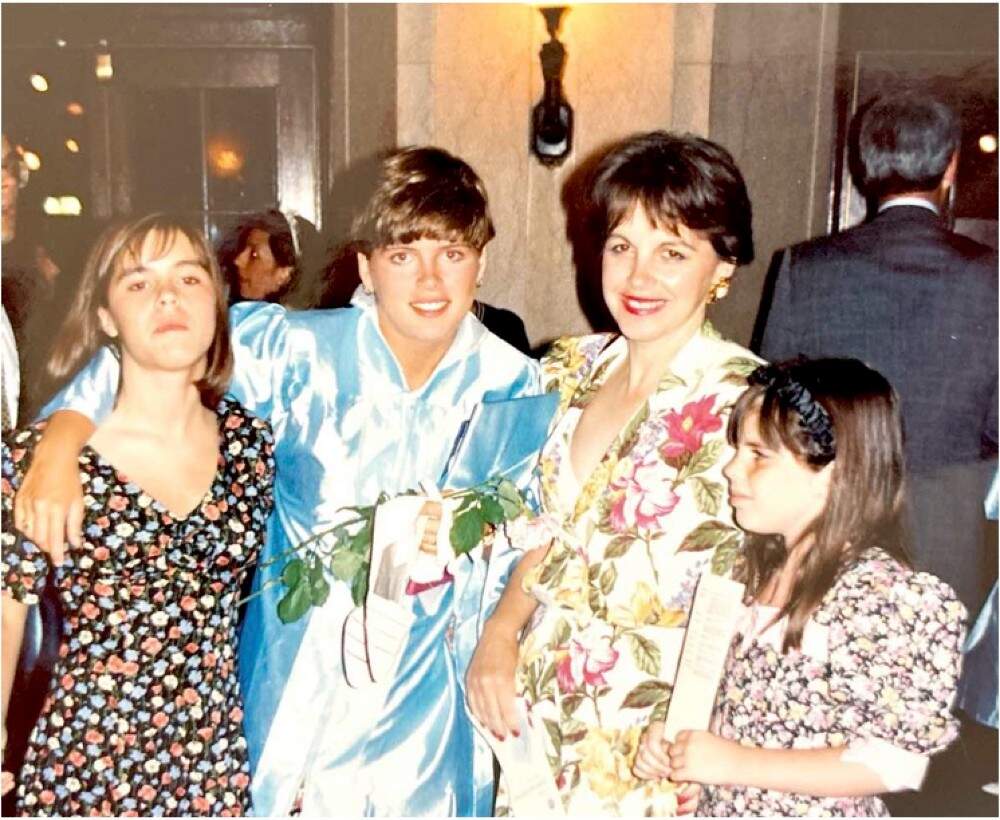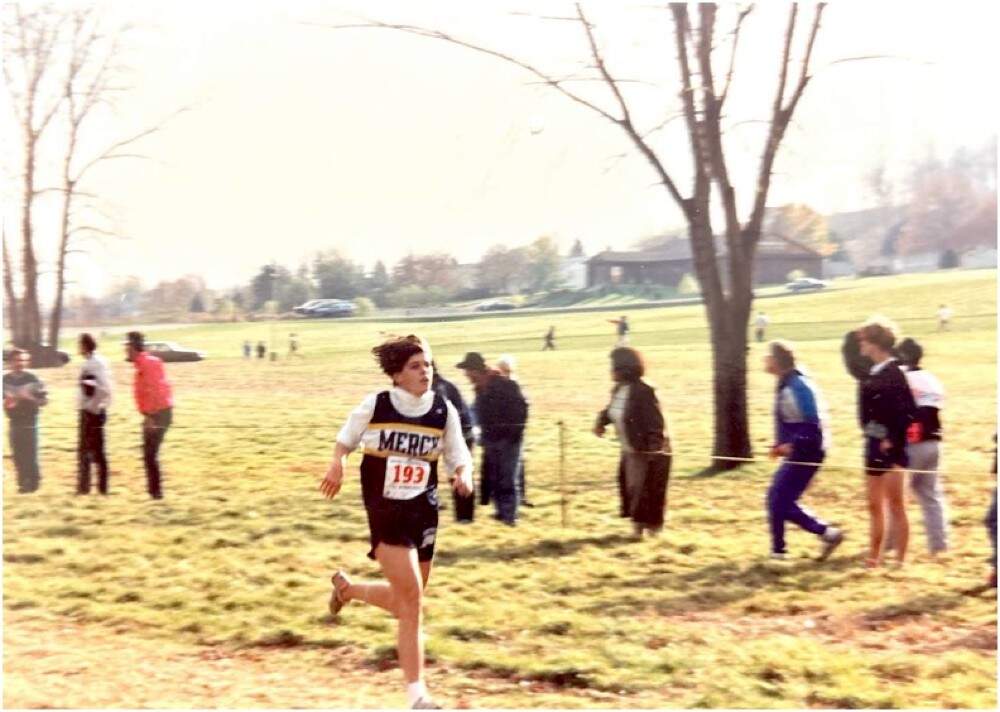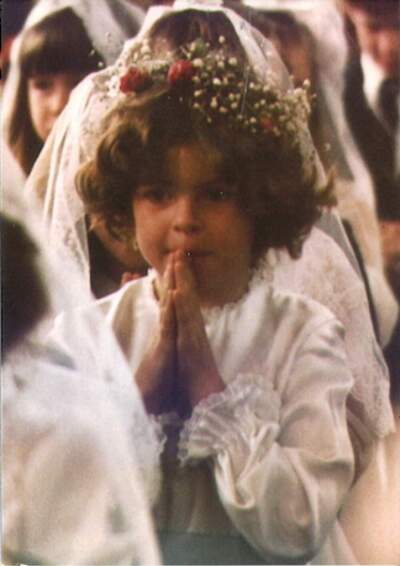Advertisement
Commentary
We don’t have to agree on everything to act on our faith

About 10 years ago I started to quietly pray the Our Father when I really, really need to feel grounded (otherwise I breath count). The prayer calls for trust in a higher purpose, enough for today’s needs, the two-sided forgiveness and forgiving and right-minded action. What I love the most about the Lord’s Prayer is the voice, the plurality. Our Father is a prayer from us — for us.
I can count on one hand the number of times I have been to Mass as an adult, including a wedding and a baptism. And objectively, the Catholic Church has failed as an institution, time and again. But, as the church gets ready to select a new pope, I can’t help thinking of the countless people in my community who took the time to fold me into their lives, who showed me the power of caring for others as if they were your own.
I spent my first 18 years in a bit of a Catholic bubble, including 12 years of Catholic school (four of them at an all-girls high school). I attended Catholic summer camp and even found my first job in the Sisters of Mercy kitchen, serving sick and elderly nuns.
Growing up, my sisters and I lived poor. Despite our single mom’s hustle, we never had any financial security. It felt like a race to the bottom. I walked to the payphone down the street when our phone line got disconnected, which was often. Groceries were hit or miss. We moved more times than I care to recount, always to a less desirable location, always under duress. And, like many kids without enough, I felt the shame of charity. Face burning, I poked at the odd and inexpensive gifts we got from strangers' holiday drives on Christmas, the wobbly bright orange cheese blocks that were distributed by some government agency. I cried at clumsy dental care offered by first-year student hygienists on community days.

Of course, paying school tuition (times three) seems like madness when you can’t pay the phone bill. But my mother was a faithful person, and her non-negotiables were Church on Sundays, parochial school and not saying the Lord’s name in vain (though the F-word was fine.) She was as stubborn as she was faithful, and she knew her family would step in to cover tuition shortfalls, year after year.
At home, I was the oldest daughter, worried about things beyond my control. I pretended that I was more capable than I was, braver than I felt. I tried to direct my mother, boss my sisters. I was growing up too fast. School was a respite. I was curious, a bit of a feral know-it-all, always saying the wrong thing at the wrong moment, hyper and bouncy, and never raising my hand — just shouting out the answer instead. But, I was also funny enough and liked learning and wasn’t afraid to be my imperfect self.
Outside our apartment, I wasn’t measured by my family’s struggles, but as a person. Countless teachers in and out of the religious order, and the parents of my friends — close or not — gave me dinner and lunches, clean clothes, a place to sleep and blend in, attention when I wanted it and anonymity when I didn’t. They never made a fuss about it or asked for recognition. Their efforts didn’t feel like pity or charity, they felt like support and love.
Advertisement
People like my beloved English teacher and greatest supporter, Mrs. Boesel.
As a teenager, while I ranted about the patriarchal hubris of the church and insisted I would no longer take the required religion classes, Mrs. Boesl magically secured an independent study for me so that I could graduate.

Two friends, Dorothy and Melissa, separately and quietly offered to buy me the coveted class ring that my mom couldn’t afford, the ring that was a virtual requirement for every Mercy student. Julie’s parents — and Colleen’s big family — let me slide into their lives. Mr. and Mrs. O’Neill gave me a job at their restaurant and more: Whether I needed dinner or a prom dress, I knew they would offer it before I could ask.
Coach Jones encouraged me to run, and did it forcefully but respectfully, helping me get out of my head and into my body. I don’t know which was the bigger gift: a pack of friends and allies or a lifelong strategy for making myself feel stronger.
As a young child, I tried earnestly to be pious. I would slide carefully around the house with my hands in prayer position, head bowed, nun-like, with a makeshift habit on my head. I joined the choir even though I only ever mouthed the words — just so I could wear the red and white robes.

But when I entered high school, my religious faith took a dive. I struggled with too many questions, was furious about the inherent unfairness and sexism of the Church. By the time I was 18, everything religious was the target of my fury and frustration. When I left home, I was glad to walk away from the Church and its doctrine, relieved to have escaped the stuffy, small world I knew. I felt I was destined for more.
I failed to realize what I was leaving behind.
In college and beyond, I got the bigger world I hoped for, but I lost the community of beloved teachers and coaches, and friends and their families who had given me a place to be myself. I missed the spiritual and religious values I saw in action. Kindness, generosity, inclusion, giving without “othering.”
I know next to nothing about Pope Francis and his legacy. And what I know about the conclave I learned from watching Ralph Fiennes and Stanley Tucci pretend to be cardinals in a movie. But I do know that we don’t have to pick either/or, that we have to learn to be comfortable with both/and. The Catholic Church has not lived up to its principles, but in my life, its parishioners have.
I wish I had trusted what my community showed me: that I was accepted. That I was loved. That we don’t have to agree on everything to act on our faith. We are all part of something bigger, and helping each other is part of the calling.
Follow Cog on Facebook and Instagram. And sign up for our newsletter, sent on Sundays. We share stories that remind you we're all part of something bigger.
